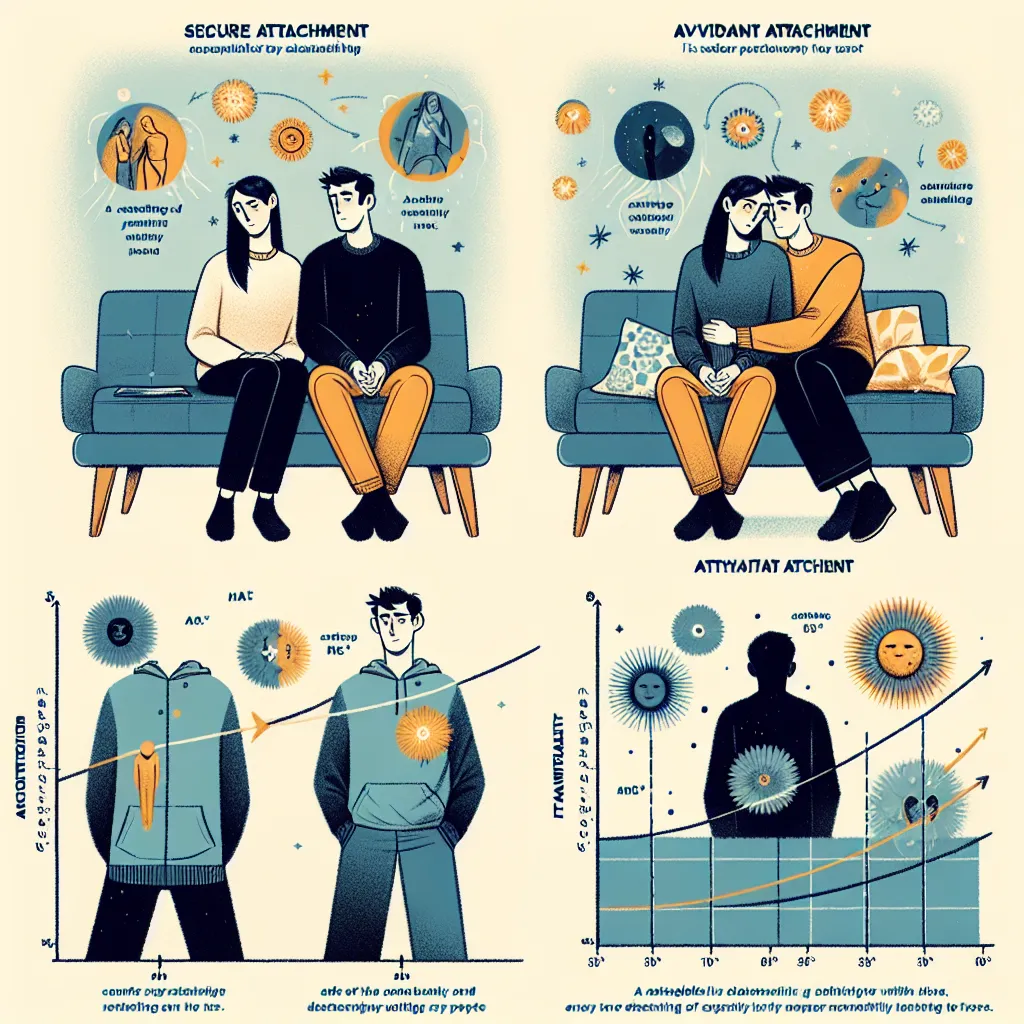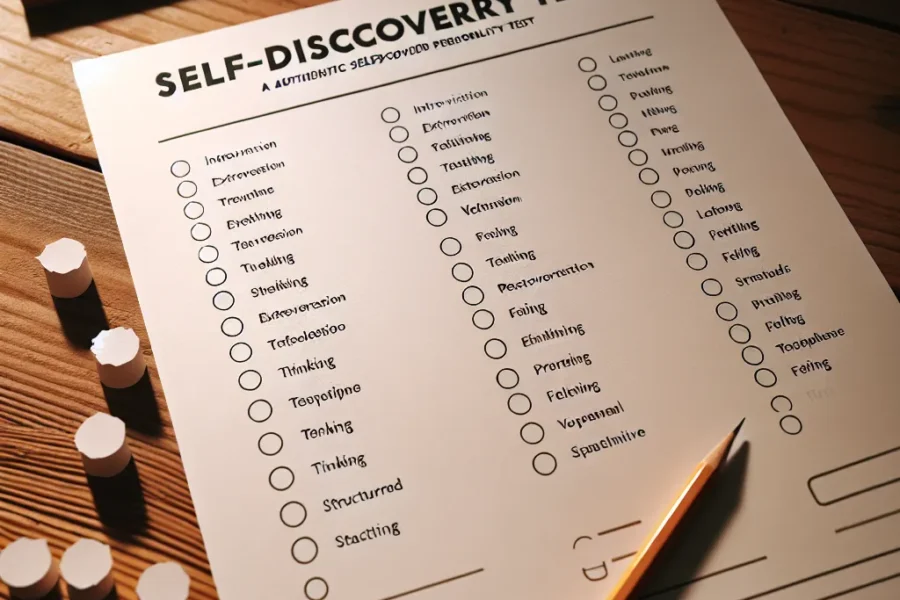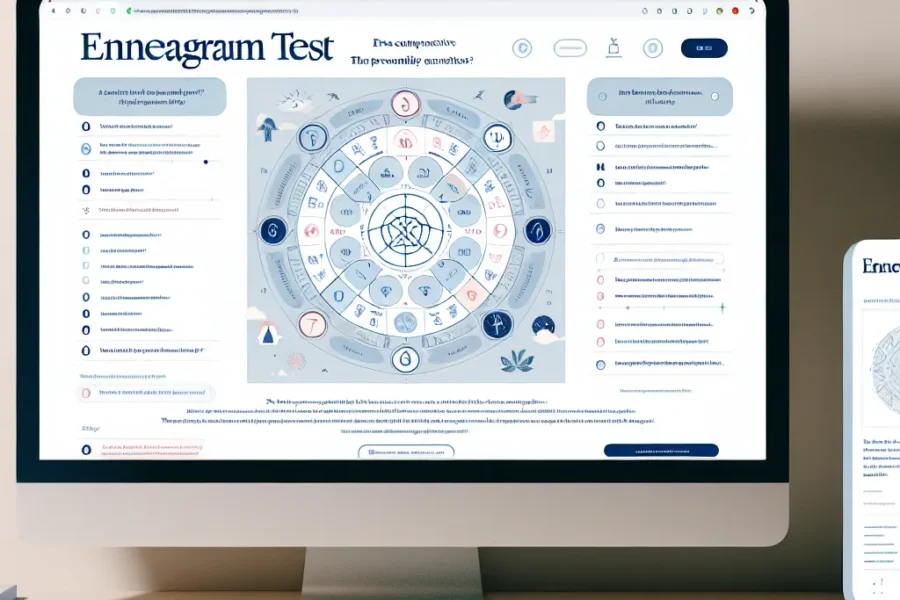Looking to delve deeper into your personal relationships and understand the dynamics at play? Precisionpersonality.online is your gateway to gaining insights into your own psyche. This platform offers an incredibly accurate and free personality test that can shed light on your characteristics and tendencies. Comprehending your personality is just one piece of the puzzle when it comes to navigating the intricate web of human connections. Another crucial aspect is understanding your relationship attachment style, a concept rooted in the science of attachment theory.
Attachment theory, initially developed by John Bowlby and Mary Ainsworth, outlines how individuals form emotional bonds and develop attachment styles during early childhood which influence their behavior in relationships throughout their lives. Psychologists categorize these styles into four main types: secure, anxious-preoccupied, dismissive-avoidant, and fearful-avoidant.
A free relationship attachment style test can be a valuable tool for revealing the attachment style that characterizes your interpersonal relationships. Such online tests typically consist of a series of questions that assess your behavioral and emotional responses in various relational scenarios. At the end of the test, you receive an analysis that interprets your answers and identifies your attachment style, offering insights that can help you understand your patterns in relationships.
Understanding your attachment style has numerous benefits:
1. **Self-Awareness**: Recognizing your attachment patterns allows you to foresee your responses in intimate relationships and why you act the way you do. This insight can lead to greater self-awareness and personal growth.
2. **Improving Relationships**: Understanding both your and your partner’s attachment styles encourages empathy and communication, which are key in building stronger and more secure bonds.
3. **Managing Expectations**: By knowing your attachment style, you can set realistic expectations within your relationships and avoid potential misunderstandings or conflicts.
4. **Personal Development**: Knowledge of your attachment style empowers you to work on areas of insecurity or emotional barriers that may be limiting your relationship potential.
5. **Therapeutic Insight**: For those engaged in therapy or counseling, understanding attachment styles can enhance the therapeutic process and provide a framework for discussing relationship issues.
Finding a reliable free relationship attachment style test online can be easy, with numerous mental health platforms and relationship experts offering these resources. Typically, these tests will pose questions regarding how you handle closeness, interpersonal stress, trust, and intimacy. The intention is not to pigeonhole but to provide a starting point for reflection and improvement.
Upon discovering your attachment style through a free test, you might wonder how this newfound knowledge can manifest in real-life scenarios. A secure attachment style, for example, is characterized by a comfortable level of intimacy, the ability to depend on others, and a positive view of oneself and others. On the flip side, the anxious-preoccupied style may involve an intense desire for closeness coupled with a fear of abandonment.
For the dismissive-avoidant attachment style, maintaining emotional distance and prioritizing self-reliance might come naturally, sometimes at the expense of intimate relationships. Lastly, the fearful-avoidant style combines the apprehension of the anxious style with the detachment of the avoidant style, leading to an ambivalent approach toward relationships.
Taking the free relationship attachment style test is only the beginning of a journey. Once you understand your attachment style, you can explore strategies to cultivate healthier relationships or reinforce a secure attachment pattern. For example, if you identify with the anxious-preoccupied style, learning to foster self-sufficiency and self-confidence can help mitigate your attachment-related anxieties.
Alternatively, if you align with the dismissive-avoidant or fearful-avoidant styles, you might work on building trust and openness with others, while those secure in their attachments can continue to nurture the behaviors that support balanced and fulfilling relationships.
In addition to the self-discovery a free relationship attachment style test offers, there’s also value in sharing and discussing the outcomes with your partner or close friends. This communal exploration of attachment styles can lead to a shared understanding and support network, encouraging everyone to create healthier interactions and emotional connections.
If you’re single, recognizing your attachment style can inform your approach to dating and future relationships. It can help you identify potential partners with complementary or secure attachment styles and prepare you for the interpersonal dynamics that might unfold.
Moreover, the knowledge gained from a free relationship attachment style test transcends romantic relationships. It can play a significant role in how you interact with family members, friends, and even colleagues at work. A secure attachment style, for instance, often translates to better teamwork and more effective communication in professional settings.
For those interested in further exploring their attachment styles, a wealth of literature and resources are available. Books such as “Attached” by Amir Levine and Rachel Heller, or “Insecure in Love” by Leslie Becker-Phelps, offer deeper dives into the world of attachment theory and practical advice for application in daily life.
Online forums and support groups focused on relationship attachment styles can also provide a space for discussion, shared experiences, and mutual advice. Engaging with a community of individuals interested in attachment theory can be both informative and comforting as you navigate your relationship landscape.
Of course, not all online tests offer the same level of accuracy or depth, and it’s crucial to approach free online assessments critically. While they certainly provide valuable insights, these tests are general guides rather than definitive evaluations. For a more nuanced understanding, consulting with a licensed psychologist or therapist who is versed in attachment theory may be beneficial.
Lastly, let’s not discount the role of self-reflection and continuous learning in understanding your own relationship dynamics. An online test might provide the spark, but a journey of self-discovery never truly ends. It’s an ongoing process of acknowledging, accepting, and, when necessary, adapting the ways in which we form and maintain our closest bonds.
In summary, a free relationship attachment style test serves as a window into the inner workings of our relational lives. From precisionpersonality.online’s personality insights to the understanding garnered from an attachment style test, the knowledge we gather is a powerful ally on the path to healthier, happier, and more secure relationships. Embrace the journey, and let the wisdom of attachment theory guide your steps toward more profound connection and fulfillment in all your personal interactions.



Leave a Comment